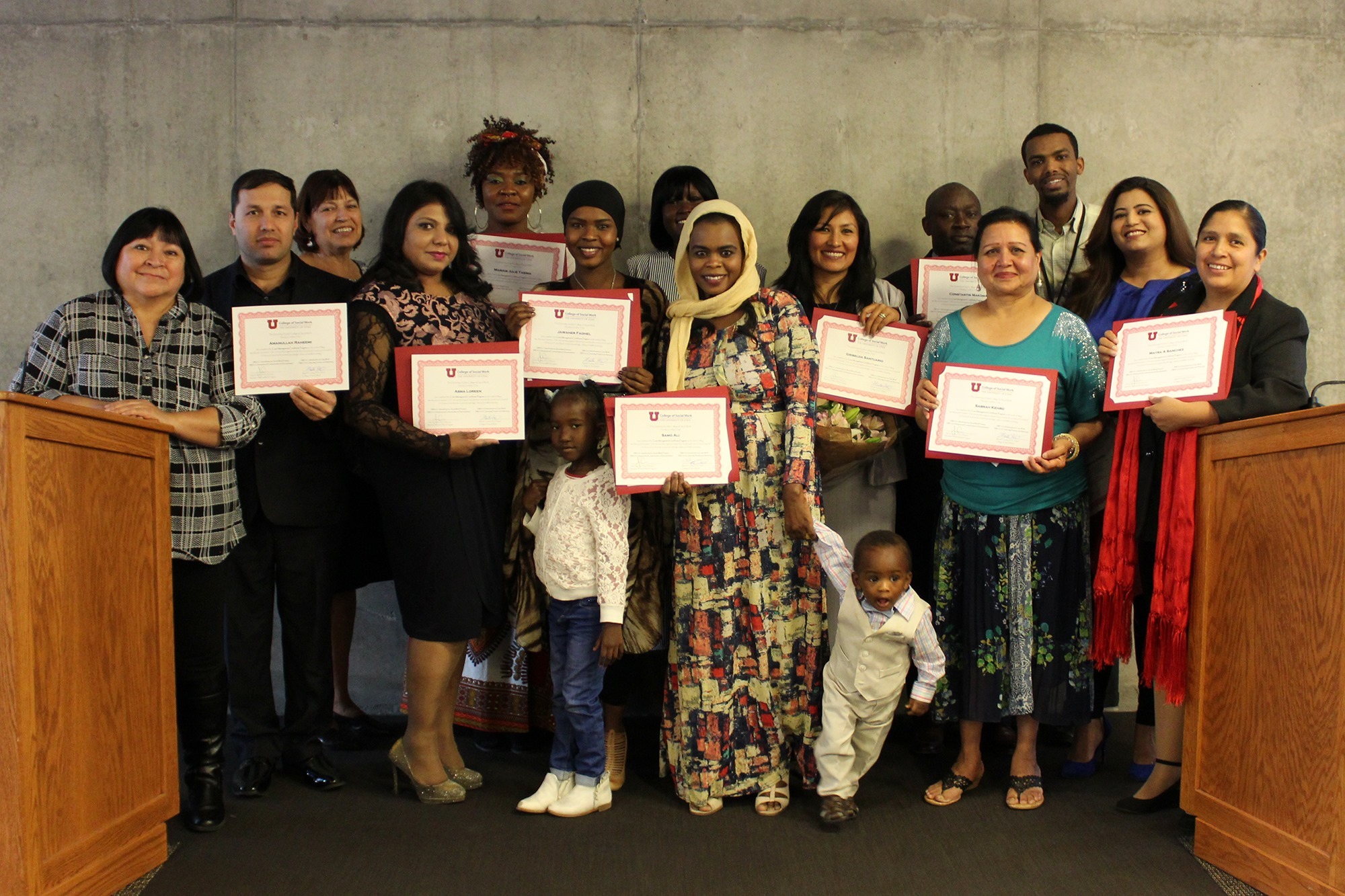
The Level 2 Case Management course, “Introduction to Addiction and Recovery”, has its roots in a collaboration that started nearly 3 years ago. The Global Mental Health track within the University of Utah Adult Psychiatry Residency Program was just getting off the ground when I met Dr. Robert Kagabo, a professor and researcher with the department of Family and Preventive Medicine. We started brainstorming ways to work together and involve Global Track Residents in his ongoing investments in Uganda. These initial conversations eventually expanded to include members of the Bridging Borders Collective (Dr. Rosemarie Hunter and Kimberly Schmidt) and several key leaders in the Arua Region of Uganda, where Dr. Kagabo had already spent significant time. Level 1 Case Management had some students also in Arua and there was interest in taking a trip there to see where else we might find opportunities for collaboration.
We ultimately traveled to Uganda in the spring of 2018. The trip provided many important insights for all of us as we visited with several levels of local leadership within the country, including government officials, university professors and provosts, community organizers, and many of the students who had previously graduated from Level 1 Case Management. One of the primary requests made by our new Ugandan partners was increased learning in the field of addiction. Substance use disorders are a very significant part of the health burden within Uganda though, for many reasons, education and the development of treatment options remain extremely limited.
A primary goal of our collaborative is to create capacity-building opportunities with true partnership in mind. We decided to create Level 2 Case Management to focus on building knowledge around addiction and greater understanding of how to work with people with substance use disorders. The initial course concept was also expanded to include other students from around the world and focuses on education for non-medical professionals in health resource-limited areas. A co-resident, Brittany McColgan, and I wrote the course and it was launched in the fall of 2019. The course is currently being taught by two second-year post-graduate residents, Dr. Jon Fischer and Dr. Julie Nguyen.
Level 2 Case Management has continued to grow the number of University partners involved and the course now includes students from Myanmar, Malaysia, Thailand, Afghanistan, Uganda, and the United States. Our students are quite amazing people who are taking this course in addition to full time jobs and other learning obligations, often with multiple barriers. All this to bring greater understanding and empowerment to their communities.
We intend to allow new psychiatry residents to teach the course each year so new generations of health professionals can learn how to collaborate with international students, as well as improve their own learning in the field of addiction.
This year we were also lucky to have a new TA join us from the College of Social Work, Christina “Chrissy” McKell. Chrissy has been instrumental in improving the ability to stay in closer contact with students from all over the world, and providing more intensive learning support. International online classes, particularly ones that work across multiple distinct cultures and with student of many different professional and educational backgrounds, can present significant learning barriers. So, the addition of a social work student as a new teacher and online “community organizer” has had a profound impact on the coordination and sophistication of our digital classroom. We hope that each year this interdisciplinary and global partnership will continue to grow and improve.
To learn more about the Case Management Course, Levels 1 and 2, HERE.
Content provided by Dr. Lauren Prest, Adjunct Assistant Professor, University of Utah School of Medicine. Dr. Prest has been a long time partner with UNP, co-creating the Hartland Free Mental Health Clinic in 2017 along with our Clinical Director, Julianne Rabb. The clinic provides free psychiatric and clinical mental health supports to community residents from refugee and immigrant backgrounds. Robert Kagabo, referred to above, was a Master of Social Work intern with UNP during the 2016-17 academic year.
